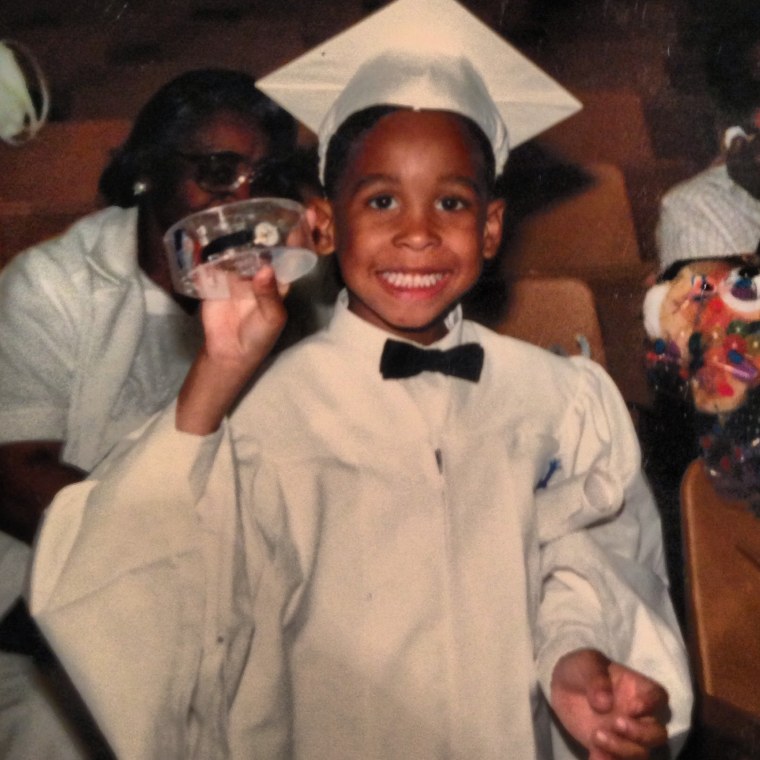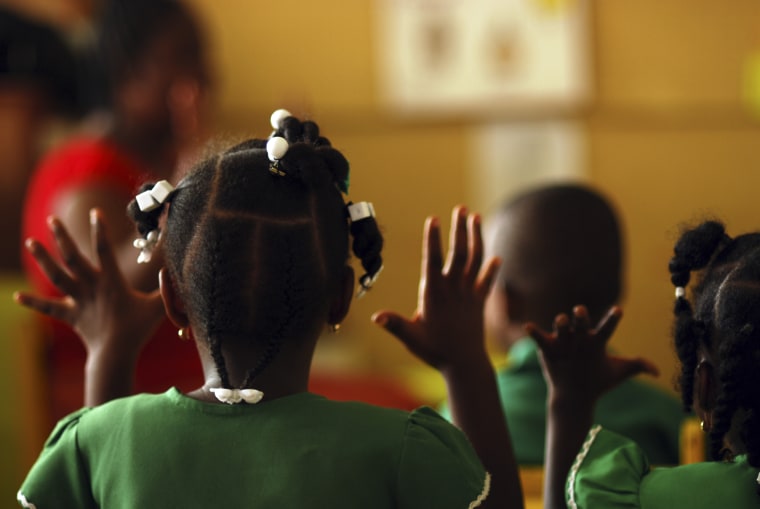Some of my earliest memories took place at Golden Day Preschool in Inglewood, CA. From ages 3-5, I learned, I made friends, and I developed a sense of self.
However, perhaps what was most memorable about my experience is the relationship that my school had with the surrounding inner city Los Angeles community.
Every year for Halloween we attended festivities sponsored by a local church. During the holidays we visited with the elderly members of the community and sang Christmas carols, and we were always learning through the utilization of resources that were present in the community that surrounded us and conspired with our teachers, school leaders and families to ensure our collective success.
At a young age, I felt like I was a part of a community that demonstrated care for my wellbeing—my learning and development. I would not have enjoyed these feelings or felt safe, and engaged without the efforts of dedicated community leaders.

The African proverb, “It takes a village to raise a child” could not be any more true for African-American youth. The village work of ensuring the spaces children move through are safe and supportive must be sustained by all caring and concerned adults so that our children develop a solid foundation upon which all future learning and development will be based.
Learning begins at birth and the preparation for learning begins well before birth; however, we rob children of the ability to demonstrate just how brilliant they are when we do not provide them with the type of high-quality early learning opportunities that lay the foundation for future success in school and in life.
RELATED: Get LIT(erature): Supporting a Lifelong Love of Reading
One of the ways the White House Initiative on Educational Excellence for African-Americans (WHIEEAA) adds value is by serving as a liaison between the US Department of Education and stakeholders in the African American community.
Recently, WHIEEAA in partnership with the National Black Child Development Institute (NBCDI) and the U.S. Department of Education’s Center for Faith-Based and Neighborhood partnerships published a toolkit designed to support communities in contributing to early African-American educational excellence. The toolkit is rich in resources that identify how families, communities, and faith leaders can work together to ensure that African American children and families are supported.
RELATED: Editorial: Education is the Civil Right
Faith and community leaders are often central pillars within the African-American communities and play a critical role in supporting early learning and development by encouraging families to play an active role in creating environments in which children are supported as they explore, learn and grow.
These leaders can support children, families and schools by hosting workshops and convening leaders to discuss proven strategies that support early learning, highlighting the importance of literacy and supporting families in accessing culturally relevant and enriching materials and discussing positive forms of discipline are ways that.
The toolkit also highlights the Department of Education’s parent checklist, “What Parents and Caregivers Can Ask and Do to Help Children Thrive at School." This useful resource can help adults communicate about their child’s needs and growth in schools.
As a community leader, faith leader, or caring and concerned adult ask yourself the following question: "Am I doing all that I can to ensure that the children and youth I encounter (or am responsible for) are learning and growing in ways that will allow them to realize their full potential?"
Our hope is your answer to this question will be, "I can do more.”
To download the Faith-Based and Community Leaders Early Learning Toolkit visit: www.ed.gov/AfAmEducation

